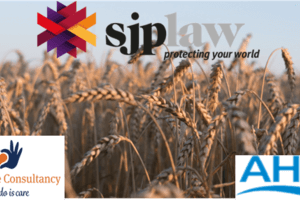Part 2 - Succession Planning
In this, the second in our series on maximising the value of your park business, we consider the importance of succession planning.
At a time when the holiday park and caravan industry is experiencing a boom, many of our clients are looking at succession planning.
Delaying the groundwork means you will not be ready to maximise the opportunity for an exit when the time comes.
This article will consider the following:
- the strategy for exit
- different types of exit; and
- how we can help.
There are two main areas a solid business plan should cover:
- what happens if you are not able to work tomorrow; and
- your exit strategy.
The first area is usually simpler to deal with and covers replacement in case of illness, injury or just going on holiday, who knows where the keys are, who has the passwords etc.
This is more of a disaster recovery plan and is important so your business keeps running. We will not focus on this in the rest of the article.
1. The strategy for exit
Succession planning is an integral part of achieving the maximum value from your business. However, it focuses on the exit rather than the day to day profitability and sustainability of the business which we looked at in Part 1 of our series on Achieving the Maximum Value from your Business. Throughout the planning of your exit strategy it is important to continue to stay focused on improving profitability and sustainability without becoming too distracted by your exit plan.
The profitability and sustainability points will apply to all types of succession but in this article we will look at what types of succession there are and why one may be more suitable for you than another.
For every small to medium sized business owner it is a balancing act between meeting today's needs and reaching tomorrow's goals.
Tax is an important part of succession planning and getting it right can make an enormous difference to the amount you see in your pocket or pension fund after the exit. Leaving it too late or failing to think about it can have very expensive consequences.
The key, regardless of the successor, is to think about it early. We appreciate that transferring ownership of your park business can be an emotional and complicated process and this is why it is often ignored until it becomes an issue. We recommend to maximise the benefit of succession planning you need to start at least 5 years before you want to pass ownership on. That is not just thinking about it but also doing something about it.
Given the business cycle of most park businesses we think now is a very good time to start planning.
2. Different types of exit
There are a number of obvious exit strategies available but some will be more suitable to your business than others.
The most appropriate form of exit will depend entirely on your main exit objective i.e. do you want to achieve the maximum value from your exit or do you want to protect the interests of the business for the next generation of your family?
Below is a summary of some of the different exit strategies available:
a. Management Buyout
This is a popular exit strategy for business owners who have built up a reliable team of managers. They are often popular as the owner will be familiar with the management style and will trust that the management team will continue to run the business successfully.
If you do not have a suitable management team you could consider bringing one in. A manager will not want to buy a business that will only last 6 months and more importantly their funders will not either.
b. Private Equity Sale
They look for a stable not volatile work flow which they can expand the profitability of over a 4 or 5 year period then an exit - again the point is sustainability and profitability. The business must be or become attractive for a subsequent acquisition or investment to take place.
c. Trade sale
The process and points to consider are very similar to the Management Buyout and the Private Equity exits. Again it all feeds back to profitability and sustainability.
All buyers look for a good fit. They will pay handsomely if they can get a good fit. That is because your business and their business together will create them more profit and be more sustainable than each of the entities on their own. Think about what type of purchaser would like your park business in order to create a synergy with their own.
For example:
Customers - your park business could provide more customers of the same type as the buyer or different customers so introducing new markets and reducing dependency and thus creating greater diversification.
Specialisation - your park business may offer greater depth by adding the same specialism or breadth by offering diversification into complementary areas.
Location - consolidation within the same location could add market share or extend the market geographically.
Technology - your park business may be more advanced than the buyer's and so your efficiencies can be harnessed by the buyer to improve overall efficiency. Alternatively the buyer may be more advanced and see the potential to increase your profitability.
Economies of scale - the two entities could secure a dominant position or a more secure competitive advantage.
Identify and cultivate possible acquirers. Take steps to position yourself for the optimum acquisition and in accordance with a timetable that is attractive to the buyer. Avoid a short term timetable as this will only lower the price you may achieve.
d. Family
Family members may be more willing to ignore some things than outside investors. However, family succession can often cause problems and arguments within families if they are not handled correctly. In the worst case scenarios an ineffective succession plan can lead to the end of a family business.
Ensuring that the timing of your exit is just right is crucial in family businesses, exit too early and the next generation may be too inexperienced to run the business, exit too late and your influence may inhibit the next generation's dynamic and drive.
Focus on the skills not the relationships - be objective and determine what your park business requires to survive and grow and be prepared to admit, possibly painfully that your children may not be up to the task. Separate personal and business goals and be clear about what you want.
Caravan park businesses are a popular example of a family business. Whilst the business is owned by a father and two sons it runs smoothly. Once the father dies or retires what will happen? In all likelihood it will continue because there are two sons with families and the park business can still sustain them. However, if both sons have three children where will it be passed on to and how will the business be run then? This type of scenario is not uncommon and needs considerable planning to ensure the business can survive and prosper. Without careful planning the business could soon become unsustainable and arguments could occur.
e. Solvent winding up and distribution
Where the park business is not in a sustainable form and it is not trading profitably in some circumstances the best option may be a solvent winding up before the business's assets become eroded by the business's growing liabilities. It is still important to get the tax planning dealt with correctly otherwise you may realise considerably less than you thought you were going to.
How we can help
We can help you to consider what sort of exit strategy would be most suitable for your park business and also for you personally, paying particular regard to the taxation treatment of your plan to ensure that your plan is tax efficient and that it is compatible with your general estate planning.
We appreciate that the prospect of handing over your business is a difficult decision to make and is one that requires a serious amount of thought and consideration before the final decision is made.
As well as having your key succession plan we would also recommend that you have a back up succession plan in case of unforeseen circumstances.
The best businesses we see have thought about succession early, are willing to talk openly to someone about it and then do something about it.
In the next article we will consider whether incorporation should be the next step for your park business.




















